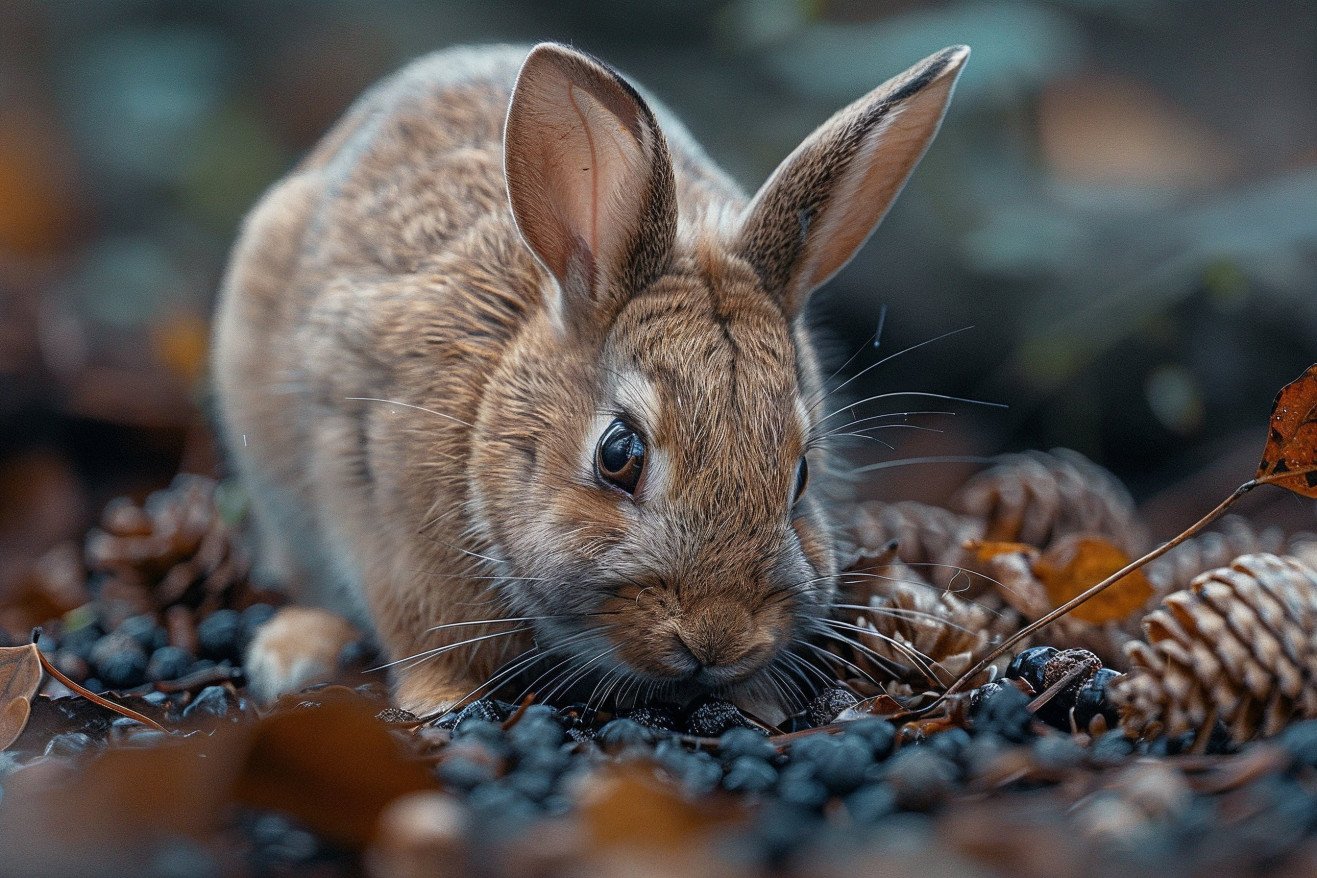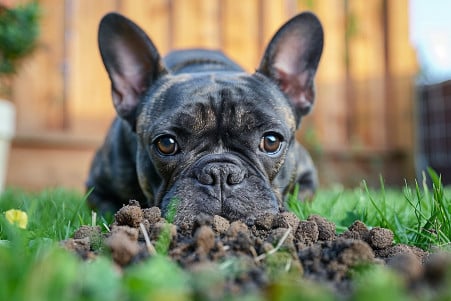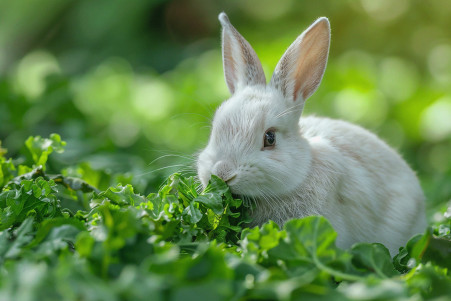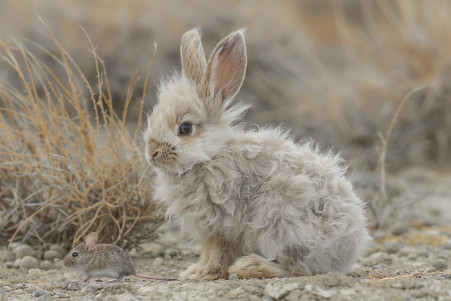Coprophagia in Rabbits: What Science Says
1 May 2024 • Updated 1 May 2024

If you’ve ever seen your rabbit eating its own poop, you’ve probably wondered why this strange behavior happens. The truth is that rabbits eat a special type of poop, called cecotropes or "night feces," to help them get the most nutrition out of their food and to maintain a healthy balance of gut bacteria.
In this article, we’ll look at scientific evidence from veterinary and zoological studies to explain the biological processes that lead to coprophagy in rabbits. This information will help you better understand why rabbits eat cecotropes and will give you a new appreciation for the amazing ways that rabbits have adapted to a diet of hay and grass.
Do rabbits eat their poop?
The Cecotrope: A Nutrient-Rich Byproduct of Rabbit Digestion
Cecotropes, also known as 'night feces,' are the end product of fermentation in the rabbit's cecum - a pouch located at the junction of the small and large intestines that acts as a 'fermentation chamber' for beneficial bacteria. These special droppings are distinct from regular fecal pellets in their appearance, texture, and nutrient composition.
According to Rabbit.org, cecotropes are soft, moist clusters resembling mulberries or bunched grapes, coated in a layer of mucus. They have a pungent odor due to their high protein and vitamin content. Cecotropes contain essential nutrients like microbial protein, short-chain fatty acids, B vitamins, and the very beneficial gut bacteria that produce them in the cecum.
By ingesting these nutrient-packed cecotropes, rabbits are able to reabsorb and utilize nutrients that would otherwise be lost, meeting a significant portion of their daily nutritional requirements. A study referenced by the NIH notes that cecotropes can contain around 28-30% crude protein and provide rabbits with excess levels of vitamins like B12.
The Rabbit's Specialized Digestive System: Hindgut Fermentation and Coprophagy
The rabbit's digestive system is specialized to rely on hindgut fermentation to extract nutrients from plant-based foods. According to Standlee Forage, the cecum, a pouch at the junction of the small and large intestines, serves as a 'fermentation chamber' for good bacteria that further breaks down and extracts nutrients from the rabbit's fibrous diet.
This digestive system requires coprophagy, the consumption of cecotropes, or "night feces," to work. As the article on Understanding Rabbit Digestion explains, coprophagy allows rabbits to reingest nutrients that would otherwise be excreted, and it provides a large portion of the rabbit's daily nutritional needs.
The PMC study explains that the nutritional value of cecotropes, which are high in protein and vitamins, is essential to the rabbit's well-being. This digestive system demonstrates the importance of feeding rabbits a diet that's high in quality fiber, like hay and fresh vegetables, to keep their digestive systems healthy.
How to Keep Your Rabbit's Digestive System Healthy: Diet and Nutrition
A healthy diet is the most important way to keep your rabbit's digestive system healthy and prevent conditions like gastrointestinal stasis. The RSPCA recommends that a rabbit's diet should be made up mostly of unlimited, good-quality grass hay, which is the best source of fiber for good digestion. Fresh leafy greens and a small amount of pellets can be included for extra nutrients. Burgess Pet Care suggests that you scatter food around the hutch to encourage natural foraging.
VCA Animal Hospitals says that fruits, grains, and sugary snacks should be avoided because they can throw off the balance of bacteria in the gut. Fresh water and chew toys are also important for good digestion and to keep your rabbit's teeth healthy. By sticking to these nutritional recommendations, rabbit owners can make sure their pets' digestive systems stay healthy and avoid potentially life-threatening gastrointestinal conditions.
Symptoms of Digestive Problems and When to See a Vet
Changes in the color, frequency, and consistency of a rabbit's poop can be a sign of digestive issues. The MSU Extension article explains that diarrhea, the absence of cecotropes, and the inability to eat cecotropes can all be signs of other health issues. Other signs of potential problems include a lack of energy, a lack of appetite, irritability, and changes in the rabbit's fur.
The VCA Animal Hospitals article explains that gastrointestinal stasis, a life-threatening condition that occurs when the digestive system slows down or stops, is a medical emergency. Oxbow Animal Health's guide points out that it's important to monitor a rabbit's eating habits, droppings, and behavior on a regular basis to ensure that any digestive issues are caught and treated as early as possible.
With close monitoring and an understanding of the signs of potential issues, rabbit owners can make sure their pets get the medical attention they need to deal with any underlying digestive problems.
Conclusion: Understanding and Supporting the Rabbit's Digestive System
The rabbit's digestive system, which includes hindgut fermentation and coprophagy, is an amazing example of evolution. By eating cecotropes, rabbits can make sure that they are getting the most out of their high-fiber diet and that their gut flora stays in balance. This is why it's so important to know about this process and make sure that rabbits are eating a diet that includes plenty of hay and fresh vegetables.
By keeping an eye on a rabbit's feces and habits, you can catch potential digestive issues before they become serious and get your rabbit to the vet in time. When you understand the biological reasons for this process, you can also understand and support the rabbit's unique and special digestive needs.


